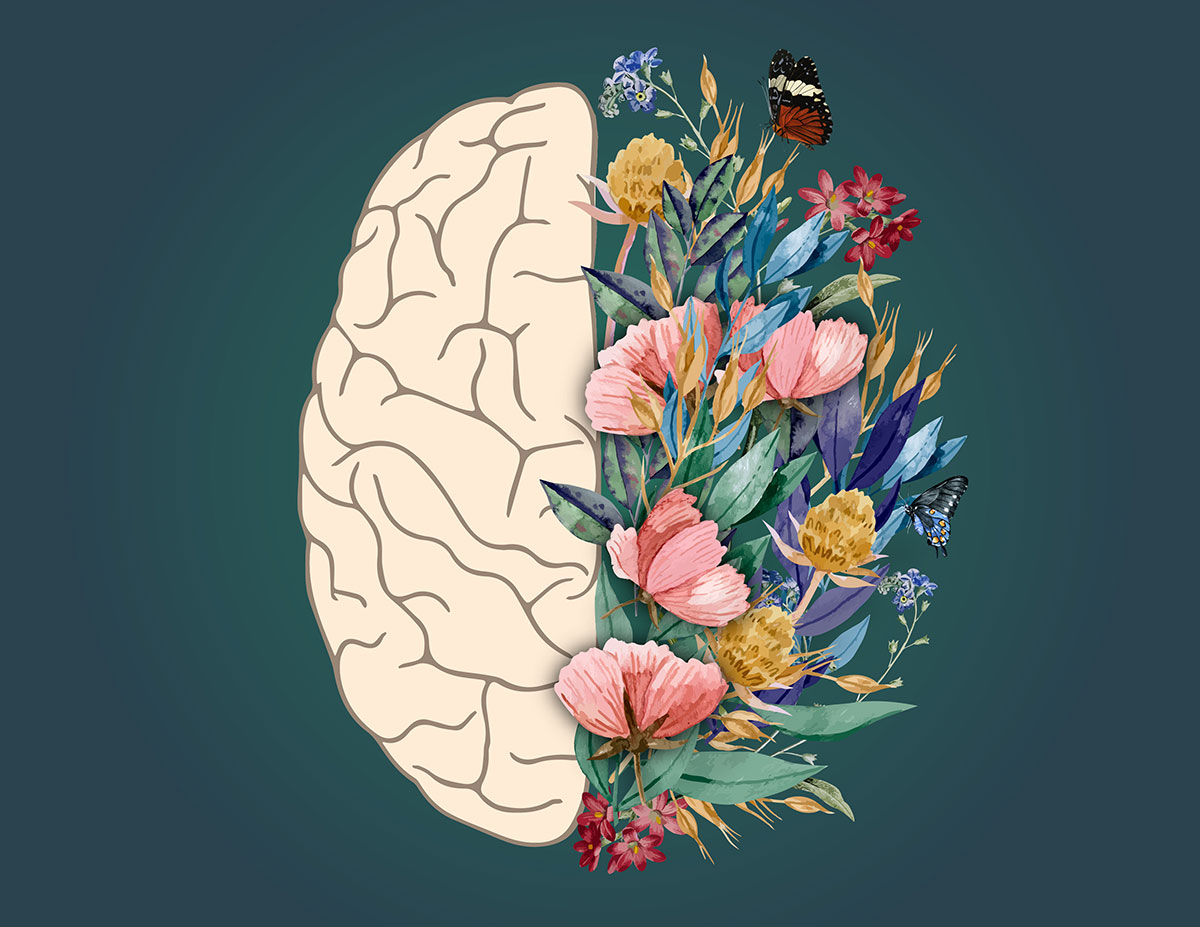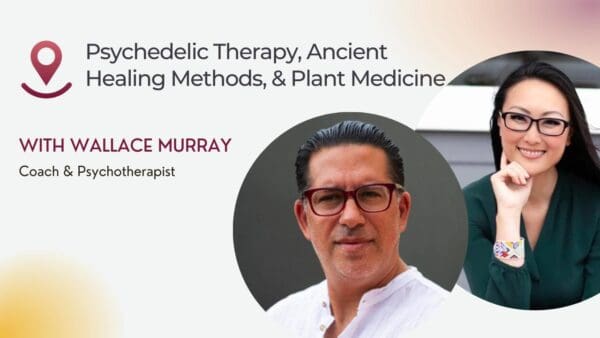A psychedelic renaissance is underway, and coming alongside it is a continually increasing public and scientific interest in these fascinating substances. Research has shown promising evidence for the safety and efficacy of psychedelic therapies, and new efforts are being theorized and proposed each day.
Curious about some of the exciting studies currently underway? There are many, but here are 8 of the most interesting studies on psychedelics right now.
Note: the requirements for inclusion in this list are that the study is legal, reputable, and currently active as of spring 2021.
1. Ibogaine for methadone detoxification
Methadone is a very long-acting analgesic drug used to treat withdrawals in cases of dependency on morphine, heroin, codeine, and semi-synthetic opioids. These are some of the most highly addictive substances in the world, and although methadone may help people recover from misuse of such substances, it often creates a new problem of dependency with its own risk of negative withdrawal symptoms.
Detox from methadone can be equally as excruciating as opioid detoxification, but researchers at the International Center for Ethnobotanical Education, Research, and Service are working on a solution. They will be administering ibogaine in place of methadone to 2 groups; one will receive a set dose and the other will receive an ascending dose over the same period of time. If methadone withdrawal symptoms appear, half of the previous methadone dose will be administered until no further treatment with methadone is required.
2. MDMA-assisted psychotherapy for PTSD
3,4-Methylenedioxymethamphetamine (MDMA) has been designated by the FDA as a Breakthrough Therapy for the treatment of post-traumatic stress disorder (PTSD). This categorization expedites the approval process for novel therapies for conditions in urgent need of a more effective approach.
The Multidisciplinary Association for Psychedelic Studies (MAPS) has been the driving force behind studies of MDMA-assisted psychotherapy treatments for PTSD, which are currently in Phase 3 trials. MDMA has shown great promise in reducing the fear response and allowing those who suffer from PTSD to effectively engage with the psychotherapeutic process. This is because participants often feel empowered to examine the traumatic events of their past without the fear or anxiety they usually feel.
3. Ketamine to prevent postpartum depression
Ketamine has already been established as an FDA-approved Breakthrough Therapy for the treatment of major depression, with clinics offering this medicine nationwide. Now, researchers are expanding the scope of their studies in hopes of finding other safe and effective ways to use ketamine.
Approximately 1 in 7 women will experience postpartum depression to some degree after giving birth. In the United States alone, around 4 million live births occur each year. That means that an estimated 600,000 people experience postpartum depression annually. This condition not only affects the parent but can also negatively impact the young child without sufficiently effective treatment.
Researchers at the Peking University First Hospital have initiated a study investigating how ketamine, which was originally developed and used as an anesthetic, could potentially be administered immediately after childbirth to prevent postpartum depression in people who experienced prenatal depression.
4. LSD for cluster headaches
Cluster headaches are painful and debilitating, often occurring every day for weeks or months over a period of time. Unlike migraines, cluster headaches tend to afflict a certain point in the head around one eye, with pain so excruciating those who suffer frequently report not being able to sit still or lie down.
Because of promising results from the use of lysergic acid diethylamide (LSD) in treating anxiety related to living with a terminal illness, alcohol use disorders, and other conditions, researchers at University Hospital in Basel, Switzerland are curious about other applications. This study specifically focuses on LSD as a potential treatment for cluster headaches; the double-blind and placebo-controlled study seeks to investigate reports that LSD has alleviated the severity and frequency of attacks, and even induced remission of cluster headaches.
5. Psilocybin for smoking cessation
Psilocybin is the psychoactive compound found in several species of mushrooms commonly referred to as magic mushrooms. It has shown such promise in potentially treating a variety of conditions that the state of Oregon legalized the therapeutic use of psilocybin by popular vote in 2020, a plan that will be enacted by 2023.
Researchers at Johns Hopkins University are conducting a study in collaboration with The Beckley Foundation and Heffter Research Institute to examine whether psilocybin could help people give up smoking when combined with existing, structured smoking cessation approaches.
6. 5-MeO-DMT for Treatment-Resistant Depression (TRD)
5-methoxy-dimethyltryptamine (5-MeO-DMT) is a psychedelic alkaloid derived from tryptamine, which causes hallucinogenic effects. It can be found in several species of mushrooms, certain plants, and even in the skin of the Sonoran Desert Toad. It is closely related to N, N-Dimethyltryptamine (DMT), which is present in commonly discussed psychedelic substances such as the ceremonial ayahuasca.
GH Research Limited is investigating the efficacy of and tolerance for their GH001 formulation containing 5-MeO-DMT in addressing the severity of symptoms related to Treatment-Resistant Depression (TRD). They also seek to understand the psychoactive effects as they correlate to different doses and the effects of a single dose on depressive symptoms.
7. Microdosing for frontline healthcare workers during COVID-19
The COVID-19 pandemic has had a devastating impact on so many people across the world. The pandemic has increased feelings of anxiety, isolation, loss, and uncertainty, and added to other sources of stress like financial difficulties. However, few have known the level of stress experienced by frontline healthcare workers during the pandemic.
Microdosing has been growing in popularity among creatives, professionals, and others looking for alternative ways to cope with life’s challenges. And so, Limbic Medical initiated a study monitoring the results of giving a microse of sublingual ketamine to frontline medical workers suffering from acute stress disorder. Microdosing is the practice of consuming a sub-perceptual dose of a psychedelic substance to enjoy the benefits without the functional impairments of a full-blown trip.
8. Medical cannabis for opioid use reduction
One of the US’ most pressing crises is the devastating impact of the overprescription of opioids for managing chronic pain. The data shared by the Centers for Disease Control and Prevention (CDC) estimated that at least 500,000 people died as a result of opioid overdoses from 1999-2019. There is an urgent need for alternative treatments for chronic pain that do not carry such a heavy risk of addiction and overdose.
As such, medicinal cannabis for treating various conditions is experiencing a surge in public support. The Albert Einstein College of Medicine, in collaboration with the Laura and John Arnold Foundation and Vireo Health, is investigating whether soft gel capsules containing medical cannabis have the potential to reduce the use of prescription opioids in patients with severe or chronic neuropathic or joint pain.
Stay up to date on the latest psychedelic research by becoming a member of Psychable’s online community today.









